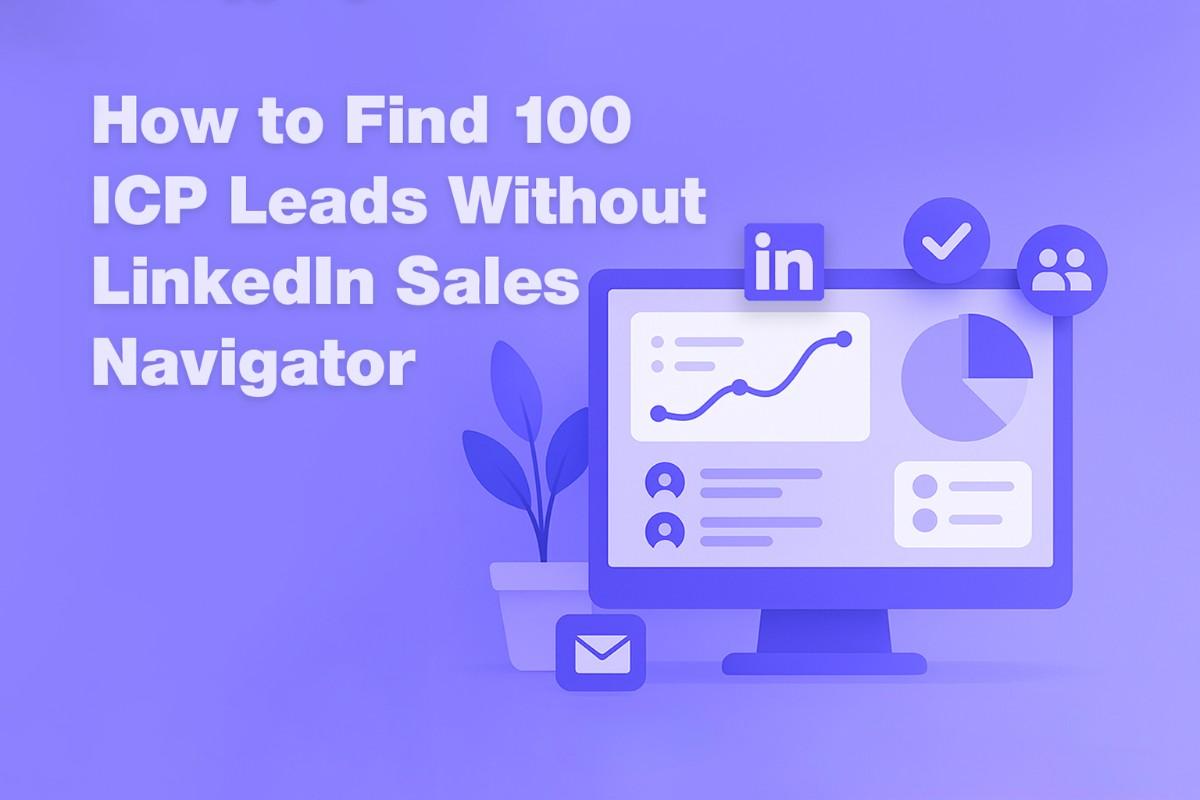Table of content
Why Automated Lead Generation Is Mandatory for Small Business Enterprises?
The modern digital space is filled with lots of small businesses. It's very challenging to compete with the big enterprise companies that have a better resource base, manpower, and market presence. However, for small businesses, automated lead generation has now been an attractive option. It helps them reach out to target audiences, educates the potential customers, and turns those leads into business with minimal effort.
Understanding Automated Lead Generation
Automation of lead generation involves the attraction, capture, and nurturing of potential customers through technological means only, without human interference. It refers to the use of various digital marketing techniques, including email marketing, social media campaigns, chatbots, and data analytics, to find and convert leads most effectively and efficiently. In other words, different automation tools make the entire process of finding prospects and following up with leads much faster, saving time, effort, and money for a small business.
Why Small Businesses Need Automated Lead Generation?
Here are some reasons, why Small Businesses Required Automation Lead Generation:
1. Economical Solution
The major concern in small businesses is the issue of the budget. Traditional methods of marketing, which involve cold calls and direct mail, can be costly apart from being a probable money wastage. Automated lead generation becomes so cost-effective because it employs the use of digital tools, which normally are cheaper and more scalable. For instance, automation in email marketing tools reaches out to thousands of potential customers at a fraction of the cost spent by traditional marketing methods.
Automation reduces the need to have many people within the sales teams, as most of the functions are done by software, therefore freeing the business from employing manual effort on trivial things. The resulting cost-efficiency lets smaller enterprises put limited resources to work far more strategically, perhaps to other key areas of their operations, such as product development or customer service.
2. Improvement of Efficiency and Productivity
It helps in making small business operations more efficient by automating repetitive tasks. Sending follow-up emails, scheduling appointments, and tracking interactions may involve much time if it had to be done manually. Automation tools do this, freeing time for the business owner or their respective teams to focus on high-value activities like closing deals and relating to the clients.
Besides increasing efficiencies, automation of such routine processes helps small businesses reduce common human errors in data entry and handling when done manually. Reduction of errors means more accurate information, which is seen as critical for making informed decisions in business.
3. Provides Consistent Lead Nurturing
Automation of lead generation tools interacts with prospects at every stage of their buyer's journey. A well-structured automated system nurtures leads with personalized content, updates, and offers concerning behavioral interests. This will keep continuous interaction, top-of-mind awareness of the brand, help gain trust, and slowly DRIP the prospect down the tunnel to the decision to buy.
Because of minimal personnel and resources, it is usually difficult for small businesses to keep regular contact with leads. In this respect, automation fills in the gap by making each lead properly nurtured, regardless of size or capacity. Sending the right message to the right person at just the right time increases the chances manifold.
4. Enhances Customer Segmentation and Targeting
One major benefit of automated lead generation segregates and targets customers better. Automation tools use data analytics to segment leads into groups based on a number of varied parameters, which include demographic data, behavioral facts, purchase history, and the level of engagement. This segmentation allows small businesses to tailor their messages and offers to each group, thus improving the chances of conversion.
For instance, a small e-commerce company can automate personalized product recommendations to customers based on purchase or browsing history. This level of personalization will enhance not only customer experience but also lead to higher sales and better customer retention rates.
5. Improves Lead Conversion Rates
Automating lead generation tools through data-driven insights provided allows the identification of leads most likely to convert, hence prioritizing them for follow-up. This targeted approach ensures the sales team focuses their efforts on high-quality leads likely to convert. On this, small businesses can guarantee maximum conversion rates by automating the processes of lead scoring and qualification for better ROI.
Also, automation tools can track and analyze customer interactions on multiple channels for valuable insight into customer preference and behavior. This data will help the business fine-tune strategies and optimize lead generation efforts for better results.
6. Offers Scalability and Growth Opportunities
Small businesses are often unable to scale up for various reasons, primarily due to limited resources and manpower. Automated lead generation gives flexibility in scaling up the marketing efforts without greatly increasing costs. This will provide the ability for the tools to manage an increased number of leads that result from business growth, run more campaigns, and support an expanded customer outreach without adding staff.
This scalability is important to the small business that wants to extend its market and increase its customer base. Through automation, they become capable of competing with big players, reaching out to new markets, and sustaining growth for a longer period.
Benefits of Automated Lead Generation to Small Businesses:
Here are some Reasons for the Benefits of Automated Lead Generation to Small businesses:
1. Saves Time
For small businesses, the best resource is time. Automated lead generation tools save time for regular tasks: sending emails, follow-up, and updating the customer database. All it does is free up time for owners and business teams to focus on the things that matter-high strategy activities that drive growth, closing deals, and developing new products or services.
For example, small businesses can work more effectively by automating these processes; thus, their workload is easier, and better results are given in shorter lengths of time.
2. Improves Customer Experience
The customer experience is the most unique selling point in today's competitive marketplace. Smaller businesses have the assurance that customers enjoy a personalized, seamless experience with automated lead generation tools. Equipped with data-driven insights into customer needs, preference, and behavior, businesses can provide relevant content and offers valued by the customers.
For example, an automated system can send personalized birthday emails to customers, offer them special discounts for products they have bought in the past, or even send timely notifications of new products and services. Such personalized outreach optimizes customer experience and engenders loyalty, thus increasing the likelihood of repeat business.
3. Improves Decision Making
It's priceless to get data and insights automation tools which provide a small business with insight into its marketing and sales efforts. Digging into this data lets businesses discern which strategies work, which channels are bringing in leads, and where they have to work harder. This data-centric approach lets small businesses make informed decisions about their marketing strategy optimization for better results.
For example, a lead generation automation tool might reveal that one social media campaign is bringing in more leads than another. Equipped with this knowledge, a company can then allocate more resources to that channel and further maximize its overall marketing ROI.
4. Aligns Marketing and Sales Better
Automated lead generation creates better alignment in marketing and sales because of the clear, consistent process of lead management it entails. Automation tools ensure none of the leads are left unacknowledged, unqualified, and on time handed over to the sales teams for follow-up, reducing delays to minimum and increasing conversion opportunities.
For example, The above alignment will help the small business create an extremely smooth customer journey right from initial contact to the final purchase. Bridging the gap between marketing and sales can help a business improve communication and build better collaboration to achieve its revenue goals more positively.
5. Supports Multichannel Marketing
Today's customers interact with brands through several channels, including email, social media, websites, and mobile applications. Through their integration into a single platform, automated lead generation tools support multichannel marketing. With integration, small businesses will have an opportunity to touch their target audience at various touchpoints and thereby increase the chances of capturing and converting leads.
For example, a small business can use automation to run an email campaign and social media campaign simultaneously, track customer touchpoints across these channels, and engage leads by sending personalized content and offers. This multichannel approach ensures that customers are reached more widely and lead generation efforts are maximized.
6. Provides Competitive Advantage
Small businesses use any advantage that they could get to overpower their rivals in a competitive market. In such situations, automated lead generation can make a significant difference by providing a cutting edge for the low-scale business through being fast and agile, quick in responses, and customer-oriented. Through automation, small-scale businesses can outperform their competition and target a better audience with a strong brand presence.
For example, automation tools empower small-scale organizations to cope rapidly with changes in market conditions, customer preferences, and technological advancements. It is crucial from the point of view of competitiveness in the market as well as long-term sustainability.
Conclusion
With the competition presented, automated lead generation has moved from a luxury to a necessity for small businesses. In a nutshell, it provides an affordable solution that is efficient and effectively scalable in enabling an organization to attract, engage, and ultimately convert more leads. Smaller businesses can save time, reduce costs, enhance customer experience, and stay ahead of the competition in their market by using automation tools.
In a nutshell, automated lead generation can provide small businesses with everything from increased productivity and a better customer experience to more opportunities for growth and scalability. Small businesses will be opening themselves up to new opportunities, revenue growth, and long-term success by embracing automation. Automation is the future of lead generation, and those small businesses that see the trend and adapt it will be in a position to thrive for years to come.
Get your next meeting in a
matter of minutes.
Free Trial
Latest
The Ultimate LinkedIn Outreach Playbook 2025
A practical, modern guide to mastering LinkedIn outreach in 2025 — learn how to boost reply rates, p
12/1/2025How to Find 100 ICP Leads Without LinkedIn Sales Navigator
Generating 100 targeted ICP leads doesn’t require LinkedIn Sales Navigator. Learn how to leverage fr
11/28/2025


